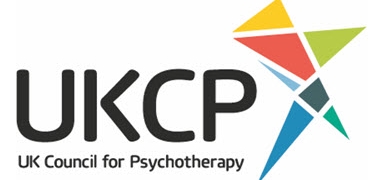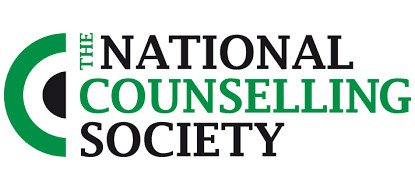Addiction, Co-dependency and Family Illness – Dealing With Addiction in the Family
/Addiction affects all members of the family, but what do we mean when we speak of the family illness?
It is generally recognised in the addiction treatment field that for each actively addicted person, be it to alcohol, drugs, food, sex, the internet, or something else, that at least twenty other people are affected in some way by the addiction and associated behaviour of the addict.
The most affected are those closest to the addict – father, mother, brothers, sisters, husbands and wives are drawn into this crazy chaotic world of the addictive illness.
Unknowingly these family members become part of the illness themselves. The ‘Family Illness’ we speak of is the response of the family members to the addictive illness of the addict in that they become ‘unconsciously’ addicted to ‘fixing’, ‘helping’ and ‘rescuing’ the addict regardless of the consequences to themselves or other family members.
Co-Dependency and relationships with addicts
This is also called Co-dependency. Co-dependency is an addiction that causes individuals to lose themselves in dysfunctional relationships such as a relationship with an addict.
Co-dependents ignore or deny their own feelings, needs, and problems while being pre-occupied or obsessing about the feelings, needs, and problems of others. They possess an exaggerated sense of responsibility for others and struggle with maintaining healthy boundaries. This can be seen as a form of self-neglect and can have severe consequences.
Recognising the ‘Family Illness’ or Co-dependency
The family member is determined to ‘help’, ‘fix’, and ‘save’ the addict from their addiction. This could be by lending money, giving time, lecturing, scolding, reasoning with, rowing with, threatening, performing daily searches to confront the addict, putting off holidays and cancelling social events, or even sending the addict on holiday.
Unfortunately, this leads to physical and mental exhaustion, and can even lead to eventual marriage and family break up. Time and time again the family member gives more time, money and other forms of support than they can’t afford or intended. The family member will continue to help despite it becoming increasingly obvious that these ‘helping’ actions’ actually enable the addict to stay in active addiction.
Family members try to ‘help’ the addict with actions such as, providing a comfortable home and food, cleaning up the mess, telling lies for, covering up for, protecting, paying fines for, making excuses for, providing transport, providing money, buying clothes to replace other clothes that have mysteriously disappeared, the list is endless.
Of course, it can be argued that most of these things are part of a ‘normal’ family commitment in today’s society and would ‘normally’ be expected within the family, but the family is trying to cope with an addictive illness in anything but a normal situation.
‘Helping’ an addict is not really helping
If the family was dealing with any other illness, then these acts of ‘helping’ would be helpful and considered ‘normal’ family behaviour. However, the sad truth is that with an addictive illness the ‘helping’ behaviour of the family member, however well meant, usually gets in the way of recovery, or prolongs the time before the addict seeks help and recovery. In addition, the capacity for family members to absorb punishment and come up asking for more can be simply phenomenal.
Addiction affects not only the addict, but their surrounding family due to co-dependency and the family illness.
All help given to the addict in whatever form is simply converted into more opportunities to continue the addiction. After all if someone else is going to pick up the pieces and put things right all the time why would the addict want to seek recovery? Their world is okay! They are completely oblivious to the pain, chaos and anarchy that they are causing around them, they are living in a world of denial.
It is only when the addict begins to experience the consequences of their own actions, only when they begin to feel the pain from those consequences, only when family members learn to ‘let go’, set boundaries, and let the addict know the consequences of their addiction are they likely to entertain receiving help and support and moving towards recovery.
Families torn apart by addiction
In extreme situations a family member can become totally focused on the addict to the exclusion of everything else, and can bring with it a loss of their own sense of self. This can sometimes lead to the break-up of the family. Sadly, it is not unusual for marriages to break up because the husband or wife becomes so absorbed in the ‘helping’ process that they will eventually choose to side with their addicted son or daughter rather than with their partner.
Where the family member is married to the addict, they may accept the progressive destruction of all that they might reasonably expect from a marriage. They may even unknowingly assist the decline of the relationship by adopting a position of being a blameless martyr. The eventual consequences of the family illness are: loss of trust, hope and love, mood swings, anxiety and depression, progressive isolation, poor health, and even addiction.
Relatives suffer around the addict
Often relatives find their core beliefs and values start to change to accommodate the needs and behaviour of their addictive relative. The financial burden of supporting an addict can be crippling.
The line between support and co-dependency can be a thin one. We need to allow the addict to undertake their own journey towards recovery.
It’s a fact that some families are more willing to pay off debts or court fines for the addict than pay towards the cost of treatment. This is perhaps done to avoid the disgrace of the addict going to prison, or the family secret being exposed to all, whereas this may be the crucial turning point that brings the addict and family member into the full realisation of the seriousness of the addictive illness and the need for both to seek recovery.
Commitment to ‘helping’ the addict regardless of the cost to themselves often reduces family members to utter despair. Family members end up with a huge amount of negative feelings and distorted thinking due to the addictive illness. It is like the world is on their shoulders.
Normal reactions to addiction in the family
Denial and disbelief - ‘This cannot happen in our family’
Shame - That such a thing could happen
Anxiety - For the addict - what they may be doing
Fear - For the future - what may or may not happen
Guilt - For the family member - may possibly have been the cause of the problem.
By something not done or done in the past (this feeling of guilt is often played on by the addict)Blame - Blaming other people for the addiction
Anger - With oneself, the addict, society and others
Isolation - The family member becomes more isolated from friends and social life
Pre-occupation/Obsession - The family member’s life is dominated by thoughts of the addict and what they may be doing
Compulsive Caretaking – The family member feels compelled to keep helping the addict
Resentment - Mainly towards the addict
Family members need help and support around co-dependency
There is recovery from the family illness or co-dependency. One way that healing can begin is if family’s choose to attend addiction family therapy and/or a 12 Step Fellowship such as Al-Anon, Al-Ateen or Families Anonymous.
In therapy families can learn about addiction, and how to undo the effects of the addictive illness on them. There will be opportunities in Fellowships programmes to connect with others who have also experienced living with an addictive family member.
It is possible to learn to love the addicted person while still hating the illness, and there will be the chance to learn about ‘tough love’ and how to begin to ‘let go’ in a safe environment. Once those within the family begin to realise they have no control over the addict’s life or behaviour, and can only influence their own life path, then they can start to put the focus back on their own lives and the healing can begin.
If I keep from meddling with people
They take care of themselves.If I keep from commanding people
They behave themselves.If I keep from preaching at people
They improve themselves.If I keep from imposing on people
They become themselves.
LAO TZU 500BC
Help with addiction in your family from Leon Standing
The Family illness and Co-dependency are a speciality within my therapeutic work, and I have a keen interest in these issues having extensive personal and professional experience. I have been doing addiction family work for many years and I am able to offer a family programme to interested family members. This includes – therapy and psycho-education on addiction and co-dependency. Please make contact to discuss this further.






